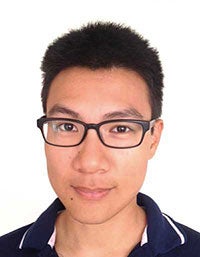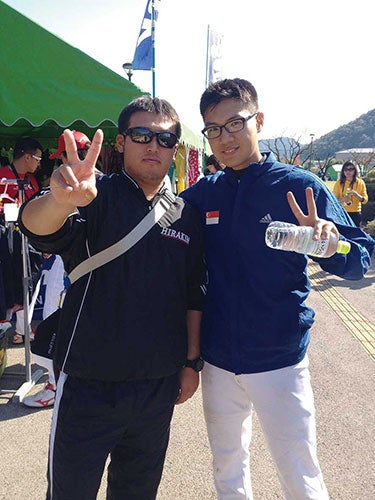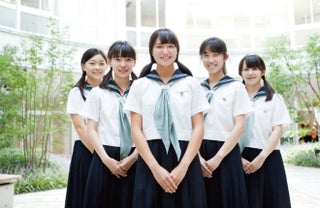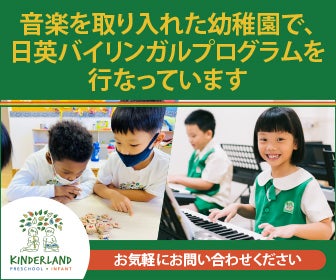~Journey to Yong Loo Lin School of Medicine at NUS~
Springでは、日本や海外の大学で学ぶシンガポール人学生に、日本で学ぶことの魅力や日本への興味についてお話を聞きました。シリーズ第3回目は、教育省語学センター(Ministry of EducationLanguage Centre, MOELC)※で6年間日本語を学んだ後、現在はシンガポール国立大学で医学を勉強しているライアンさんです。
※シンガポールでは、小学校卒業試験(PSLE)で上位10%の優秀な成績を収めた生徒が、中学入学後にMOELCで、日本語などの第三言語を学ぶことができます。
Name:Teoh Liang Wei Ryan

"Learning Japanese language gave me first-hand look at the Japanese culture, traditions and work ethic. As a medical student, I look forward to helping more people every day, and I’m especially happy to be able to help Japanese patients with my extra language skills."
Currently studying at: National University of Singapore
Studying Undergraduate Medicine at the Yong Loo Lin School of Medicine
- Primary School: Nanyang Primary School
- Secondary School and Junior College: Raffles Institution
- University: National University of Singapore
Q. You are currently studying medicine. Can you tell us a little bit about your aspiration?
Yes, I am currently on the way to achieving my dream of becoming a medical doctor. I started to aspire to become a doctor when my mother was very sick and went in and out of hospital multiple times over a period of 8 years. I really grew to appreciate the work that doctors did in treating patients and thought I wanted to help others when I grew up by becoming a doctor, too. I must say, 4 years on, I have never once regretted this decision, and I wake up every morning looking forward to helping more people. I would eventually like to specialize in Ophthalmology, and in the context of ageing population in Singapore, I hope to help improve elderly people's quality of life by restoring and maintaining their eyesight.
Q.What is your everyday life like?
Currently, since I have completed most of the course work, my learning is mainly practical and based in hospitals. I wake upearly every morning to reach hospital around 6.30-7am for work, and leave about 6-7pm to have dinner and study for exams. I sometimes do calls, which involve staying overnight until 1-2pm the next day to help treat sick patients who come in during the night.
Q.How do you think learning Japanese language has helped you so far?
Learning Japanese gave me first-hand look at the Japanese culture, traditions and work ethic. Even today, 5 years after my last Japanese class at MOELC, I still bear in mind the lessons I learned from my Japanese language teacher. Also, being able to speak Japanese has allowed me to converse with Japanese patients in the hospital, who often do not fully understand their conditions due to the language barrier. It gives me a great sense of satisfaction knowing that I am able to let them understand the situation and hence make the best decisions for themselves.
Q.How did you become interested in studying Japanese language in the first place?
It was by pure chance that I picked up Japanese, to be honest. I was offered German, French and Japanese to be my 3rd Language after primary school, and I chose Japanese because my sisters recommended Japanese, as Japan is closer to Singapore and it may be usefullanguage to learn.
Q.How did you enjoy learning the language and the culture of Japan?
As I learned Japanese at MOELC, I came to learn about Japan's culture through readings, movies and visits to Japanese festivals here. The curriculum also challenged us to find out about various facets of Japanese life, usually as part of a presentation or essay.
Personally, I play competitive softball and baseball, both sports which are intensely popular in Japan. I trained under a Japanese baseball coach who used to play in the Minor Leagues in Japan, and learned much about the Japanese style of giving one's all in training and supporting one another on the field. I was very fortunate to have had a coach like him who has taught me to go all out both on and off the field, in whatever I do.
Japan is a first-world country with rich heritage and tradition. I also know that it is a place where people are welcoming, kind and gracious to one another. I once went to Japan for a softball competition in Osaka in 2012. At the competition, I saw for the first time how highly skilled the Japanese men's softball team was and I was very impressed. Moreover, the hospitality that we received from the locals was so outstanding and I have many good memories from that trip.
 At the baseball competition in Osaka, Japan,with my Japanese friend who is an ex-Japan national team player(2012)
At the baseball competition in Osaka, Japan,with my Japanese friend who is an ex-Japan national team player(2012)Q.What was the most difficult part of studying Japanese language?
Many friends told me it would be the Kanji that would be the most difficult, but I found the more advanced grammar structures to be more challenging than remembering Kanji!
Q.Would you be interested to study in Japan?
Yes, I would be interested to go to Japan for further medical training in the future. I have heard from my friends who study there that universities in Japan have good education program, and the students are very hardworking and motivated.
In the future, if I have an opportunity to experience healthcare in Japan, I would like to see the primary healthcare system and how chronic diseases such as diabetes or high blood pressure is managed in the community. It would also be interesting to visit eye specialist hospitals to learn from their experience. However, for the time being, I will do my best in my study, and also try to be of use in helping the Japanese patients who come into the hospitals here for treatment.
























